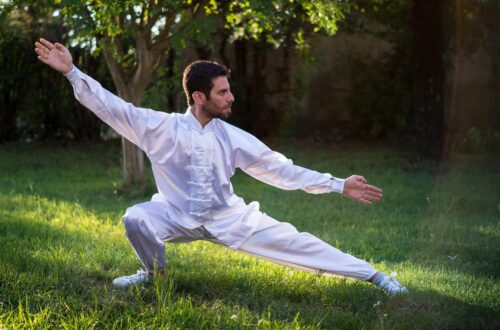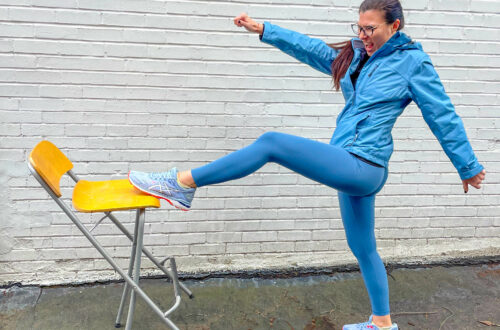Gracefully Aging One Breath at a Time
As we age, society often paints a picture of decline, portraying aging as a period of limitation and loss. However, with a healthier, more accepting outlook, aging can become a period of gratitude and fulfillment. By challenging societal beliefs and embracing aging as a natural, joyous part of life, we can rebel against ageism and maintain well-being as we grow older.
The Influence of Societal Beliefs on Aging
In the United States, the aging population is rapidly increasing. Despite this, societal beliefs often perpetuate negative stereotypes about aging. These beliefs can influence our perceptions, leading us to view aging as a time of decline rather than an opportunity for growth and fulfillment. Ageism, both subtle and overt, is prevalent in media, healthcare, and everyday interactions, further reinforcing these negative stereotypes.
Society’s view of aging can be likened to a book judged by its cover. Just as a worn cover might suggest a book is outdated or irrelevant, societal beliefs about aging can overlook the richness and depth of experience that comes with age.
Aging with Gratitude and Fulfillment
It’s time to shift our mindset and rebrand aging as a period of gratitude and fulfillment. Rather than focusing on limitations, we can celebrate the wisdom, experience, and resilience that come with age. Studies suggest that a positive attitude towards aging can lead to better physical health outcomes, such as lower rates of cardiovascular disease and longer life expectancy.
Different cultures have varying views on aging. For example, in some cultures, older adults are revered for their wisdom and experience, leading to a more positive perception of aging. Aging can be a time of personal growth and reflection, allowing individuals to pursue new interests and passions that they may not have had time for earlier in life.

Try something new every day. If you can move and think, you’re not too old to learn something new. Starting a new hobby, learning a new language, or how to play a musical instrument, are amazing workouts for your brain. Where is your focus when you first get out of bed in the morning? Why not spend a few minutes feeling thankful for the new day, for the light that allows us to see the world? Take a breath and let that breath fill you with joy and excitement for the new day.
Mitigating Age-Related Issues
While age-related health issues like muscle loss, joint pain, and brain fog are common, they are not inevitable aspects of aging. These issues can be mitigated through lifestyle choices. Proper nutrition, regular exercise, and mindfulness practices can help maintain physical and mental well-being.
- Muscle Loss: Regular strength training and resistance exercises can help maintain muscle mass and strength as we age. This can improve mobility and reduce the risk of falls and fractures. Have you ever tried water exercise classes? They are a great way to get back into strength training, as the water provides a low-impact environment for the joints and allows you to use water weights to strengthen the muscles in your body.
- Joint Pain: Low-impact exercises such as swimming, yoga, and tai chi can help reduce joint pain and stiffness. Maintaining a healthy weight can also alleviate pressure on the joints. Water walking is another great way to improve balance and reduce joint pain. Any water exercise will help improve your range of motion, strengthen muscles, and develop cardiovascular endurance.
- Brain Fog: Cognitive exercises, such as puzzles and brain games, can help maintain cognitive function and prevent brain fog. Adequate sleep, stress management, and a balanced diet rich in antioxidants and omega-3 fatty acids can also support brain health. Learning and experiencing novelty is a wonderful workout for your brain. Take a dance class, from Zumba to tap dancing or even traditional Bulgarian ‘horo’, dancing is linked to promoting brain health by numerous studies.
Practical Tips for Healthy Aging
- Nutrition: A balanced diet rich in fruits, vegetables, whole grains, and lean proteins can provide essential nutrients to support overall health. You’re probably already familiar with anti-inflammatory foods that you can introduce in your diet.
- Exercise: Incorporating regular physical activity, such as walking, yoga, or strength training, can help maintain muscle mass and flexibility. Think of fitness simply as a movement or an activity. Find creative ways to move your body, and combine it with something else you enjoy, like gardening.
- Mental Well-being: Practices like meditation and mindfulness can improve cognitive function and reduce stress. Meditation is simply relaxing your body and focusing on your breath. Mindfulness practice can be combined with nature walks, floating in the water, or just sitting in silence.
- Social Connections: Staying connected with friends, family, and community can provide a sense of purpose and belonging. Whatever your interests might be, you can always find a social group in that field to participate in.
Aging Doesn’t Have to Equal Decline
Aging is a natural part of life, and it’s never too late to embrace a healthier, more accepting outlook. By challenging societal beliefs, celebrating aging, and taking control of our well-being, we can rebrand aging as a period of gratitude and fulfillment. Let’s rebel against ageism and embrace the beauty of aging, one breath at a time.





